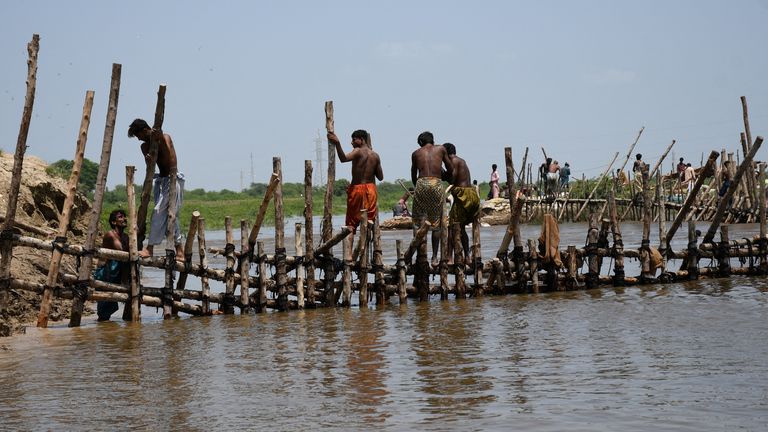The World Health Organization has raised the alarm over what it described as a “second disaster” in the wake of the deadly floods that hit Pakistan this summer.
This is as doctors and medical workers on the ground race to battle outbreaks of waterborne and other diseases.
The southern Sindh and southwestern Baluchistan provinces have been the worst hit — hundreds of thousands in Sindh live now in makeshift homes and authorities say it will take months to completely drain the water in the province.
Across most of Pakistan, floods have damaged 1.8 million homes, washed away roads and destroyed nearly 400 bridges, according to the National Disaster Management Authority.
WHO’s director-general, Tedros Adhanom Ghebreyesus, in a statement said that he was deeply concerned about the potential for a second disaster in Pakistan: a wave of disease and death following this catastrophe, linked to climate change, that has severely impacted vital health systems leaving millions vulnerable.
Read also: UN body says 16 million children impacted by floods in Pakistan
“The water supply is disrupted, forcing people to drink unsafe water,” the WHO boss said. “But if we act quickly to protect health and deliver essential health services, we can significantly reduce the impact of this impending crisis.”
In the statement, Ghebreyesus was quoted as saying that nearly 2,000 health facilities have been fully or partially damaged in Pakistan and urged donors to continue to respond generously so that more lives can be saved.
Recall that Pakistani Prime Minister Shahbaz Sharif had on Saturday, travelled to New York to attend the first fully in-person gathering of world leaders at the U.N. General Assembly since the coronavirus pandemic. He is expected to appeal for more help from the international community to tackle the disaster.
Before his departure, Sharif urged philanthropists and aid agencies to donate baby food for children, along with blankets, clothes, and other food items for the flood victims, saying they were desperately waiting for aid.
The Head of a government-run district hospital in Jafferabad in the district of Dera Allah Yar in Baluchistan, Imran Baluch was quoted as saying that out of 300 people tested daily, nearly 70% are positive for malaria.
After malaria, typhoid fever and skin infections are mostly seen among the displaced, living for weeks in unhygienic conditions, Baluch said.
Story was adapted from Time
